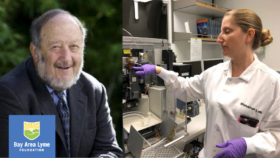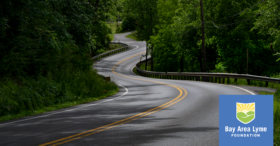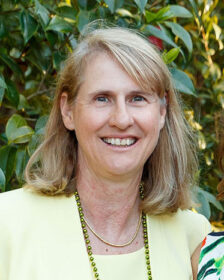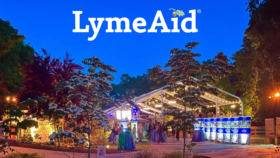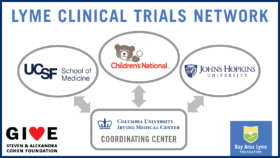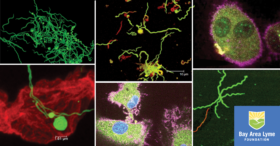FOR IMMEDIATE RELEASE
New Discovery Identifies “Don’t Eat Me” Protein that Allows Lyme Bacteria to Evade Body’s Immune Response
Stanford University/MIT/UCSF study funded by Bay Area Lyme Foundation offers new direction for tick-borne disease research, paving the way for potential new discoveries
Palo Alto, CA, May 7, 2024—Bay Area Lyme Foundation, a leading sponsor of Lyme disease research in the U.S., today announced a study finding a new mechanism of immune evasion used by Borrelia burgdorferi (Bb), the bacterium that causes Lyme disease. This study is the first to identify the specific Borrelia protein that acts as a “don’t eat me” signal to the body’s immune system in people with Lyme disease, offering insight into how the bacteria may persist in Lyme patients and introduces an entirely new research direction toward potential future treatments. The research was conducted at Stanford University and University of California San Francisco and funded in part by Bay Area Lyme Foundation. This groundbreaking data posted on bioRxiv on April 30, 2024, is expected to be published in a peer-review journal in the future.
“One of the big mysteries of Lyme disease has been how Borrelia is able to evade and survive the immune system – and this study helps answer that question. We’ve unlocked a critical door to understanding how this bacteria, and possibly other pathogens, manage to trick the immune system to evade clearance,” said lead author Michal Tal, PhD, principal scientist, Massachusetts Institute of Technology, and a Bay Area Lyme Foundation 2018 Emerging Leader Award winner who has received additional funding from the organization for this project.
In this study, researchers found that P66, a known Borrelia surface protein and one of the IgG Western Blot testing “bands” used for diagnosis, can inhibit an important portion of the immune response.
